Betta fish do have teeth, but you can only see them if you were to use a magnifying glass or look close enough. Betta fish are undoubtedly one of the fiercest fish in the hobby, which is backed up by their name, Siamese Fighting Fish, and completely justifies why so many people enquire about their teeth situation, to avoid getting nipped.

What Do Betta Fish Use Their Teeth For?
Now that we have established the fact that betta fish, although tiny, do have a pair of gnashers, it makes sense to figure out the reasons as to why they need them and what they use their teeth for.
Eating and Feeding
The main reason for betta fish teeth is for feeding purposes. Betta fish have a carnivore diet, which results in them having to eat a lot of meat-based foods. Meaty foods typically need to be broken down into smaller pieces to digest properly, which is a main reason for their teeth.
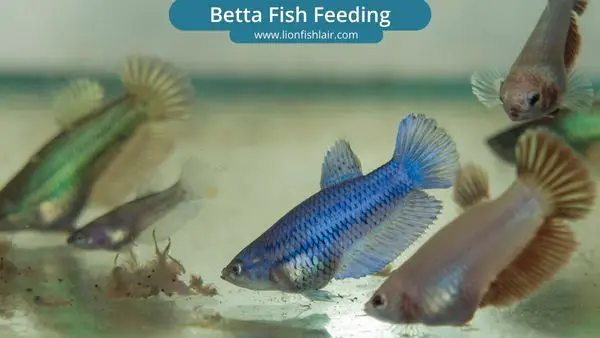
Additionally, they are hunters, especially in the wild where they have to actively search and kill their prey in order to eat a tasty meal. Having sharp teeth is needed for this as they need to grab onto pray and not let it escape before being able to consume it. So, from a feeding point of view, bettas use teeth to chew up food and also kill their food.
Attacking and Fighting
Betta fish certainly do have a slight temper issue, they will literally fight over territory until the death on occasion, which justifies their name and reputation for being fighting fish.

Many believe if they weren't such a beautiful fish species, their popularity would be nowhere near what it is today. Males will typically fight with each other, often for no good reason, which is why their teeth are so important for defense (and attack).
Do betta fish have sharp teeth? Siamese fighting fish do have sharp teeth, using them to tear up other betta fish's tails, fins, and scales. Male bettas are usually advised not to be kept together, and this is the reason why.
Do Betta Fish Bite People?
Betta fish certainly can bite people, but only if you have a naturally aggressive betta fish and are shoving your hand or fingers at its mouth! This beautiful species of fish is like many others, there will be more aggressive betta fish than others, each fish has its own unique temperament and behavioral patterns.
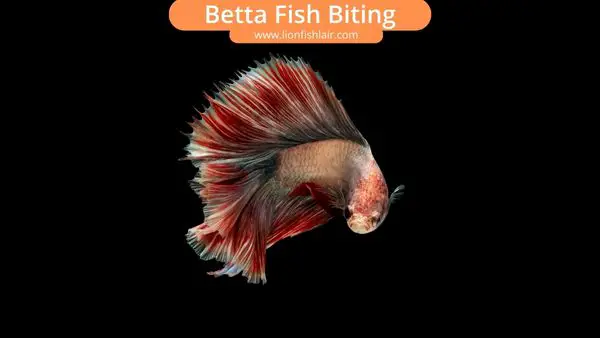
So, whilst your betta fish might ignore you if you have your hand in their tank, others may feel threatened and nip your fingers! Fortunately, betta fish teeth are not strong enough to penetrate or inflict much damage on human skin, and in addition to this, they are never typically aggressive towards humans.
Why Do Betta Fish Bite People?
There are three main reasons as to why your betta fish may bite you:
- Curiosity
- Defense
- Accidentally
Betta fish are usually pretty good with people, after all, we do clean their tank and feed them! So, the likelihood is that your betta fish saw your hand and gave it a nip based on pure curiosity, trying to get a feel for what your hand is by biting it.
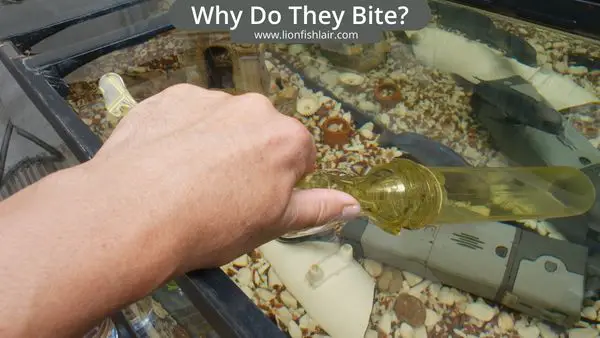
Betta fish will likely bite your hand if you are near an area or territory that they consider to be "theirs" as they are defending it and themselves. Stress can be caused if you continuously stick your hand in your aquarium, so, it is advised to not do this all the time anyway. Not only that, but you can pass through bacterial infections if your hands have not been cleaned properly before doing so, which can lead to more betta fish water changes than usual.
Bettas can certainly bite you by accident, if your finger has food on it, your betta will likely not notice and end up biting you in the process.
Do Betta Fish Bites Hurt?
No, betta fish bites are not painful to us humans due to their mouths and teeth being far too small to make a meaningful impact on our skin. It is painful for other betta fish though! Sometimes bettas can end up getting their mouth and jaw stuck on something, which can also happen with a finger, so, be careful if your betta does nip you.
Do Betta Fish Bite During Spawning?
If you have a male betta fish and a female betta fish residing in a healthy freshwater aquarium with all of their requirements met and both fish get along well, you could witness your bettas spawning. We know by now that bettas are aggressive by nature, so, it should come as no surprise they become aggressive when spawning too.

It is not unusual to see both male and female bettas biting each other during this time. Funnily enough, during their spawning, betta fish biting each other can be a good or a bad sign, all depending on the velocity and intent of their bite.
A Good Sign of Your Betta Biting During Spawning
If you see your betta fish (male or female) gently nipping at the other, it could be a good sign. If the fish who got bitten does not move much or back away a little, then it isn't entirely sure it wants to mate, but is certainly not closed-off to the idea.
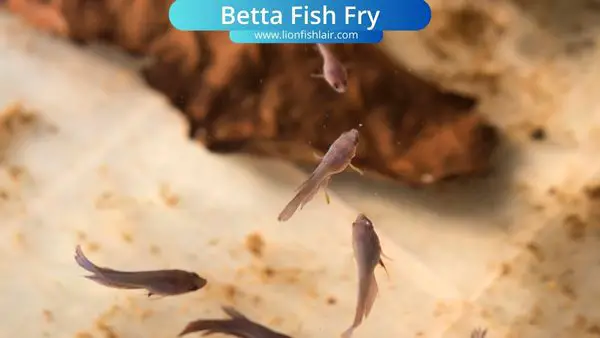
They do not have to bite each other to display interest either, so, if you have a male and female betta fish that do not bite each other, they could still be ready to mate.
A Bad Sign of Your Betta Biting During Spawning
The biting can also be a sign of aggression, especially if they are nipping at the fin or tail, you should probably separate your bettas if you notice this as it is usually not a sign of mating either. During the mating process, both males and females will aggressively bite each other to let the other know that they are far from interested in getting it on.
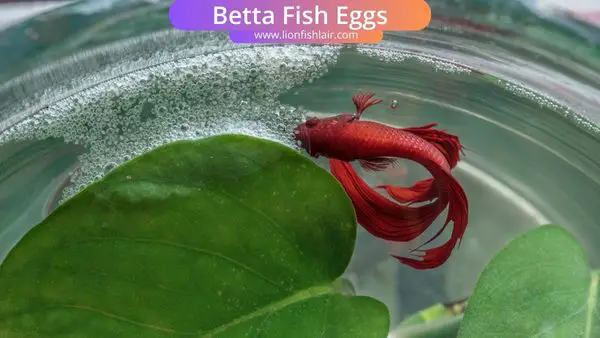
You can always tell the intention of a betta fish bite by the reaction of the betta on the receiving end of it. So, if your betta gets bitten by the other and shoots off in a frantic state, you will know that they will not mate. If this happens, it is best to wait a substantial amount of time before you try and breed them again.
Final Thoughts
Betta fish, like most other fish do have teeth, but they will certainly not cause any harm to you, nor will you likely get bitten by a betta fish. They use their teeth for much more productive things like hunting and eating food.
What you must watch out for is that they do not do it to their own breed or other tank mates from a different species as it could be a sign of worse things to come.

